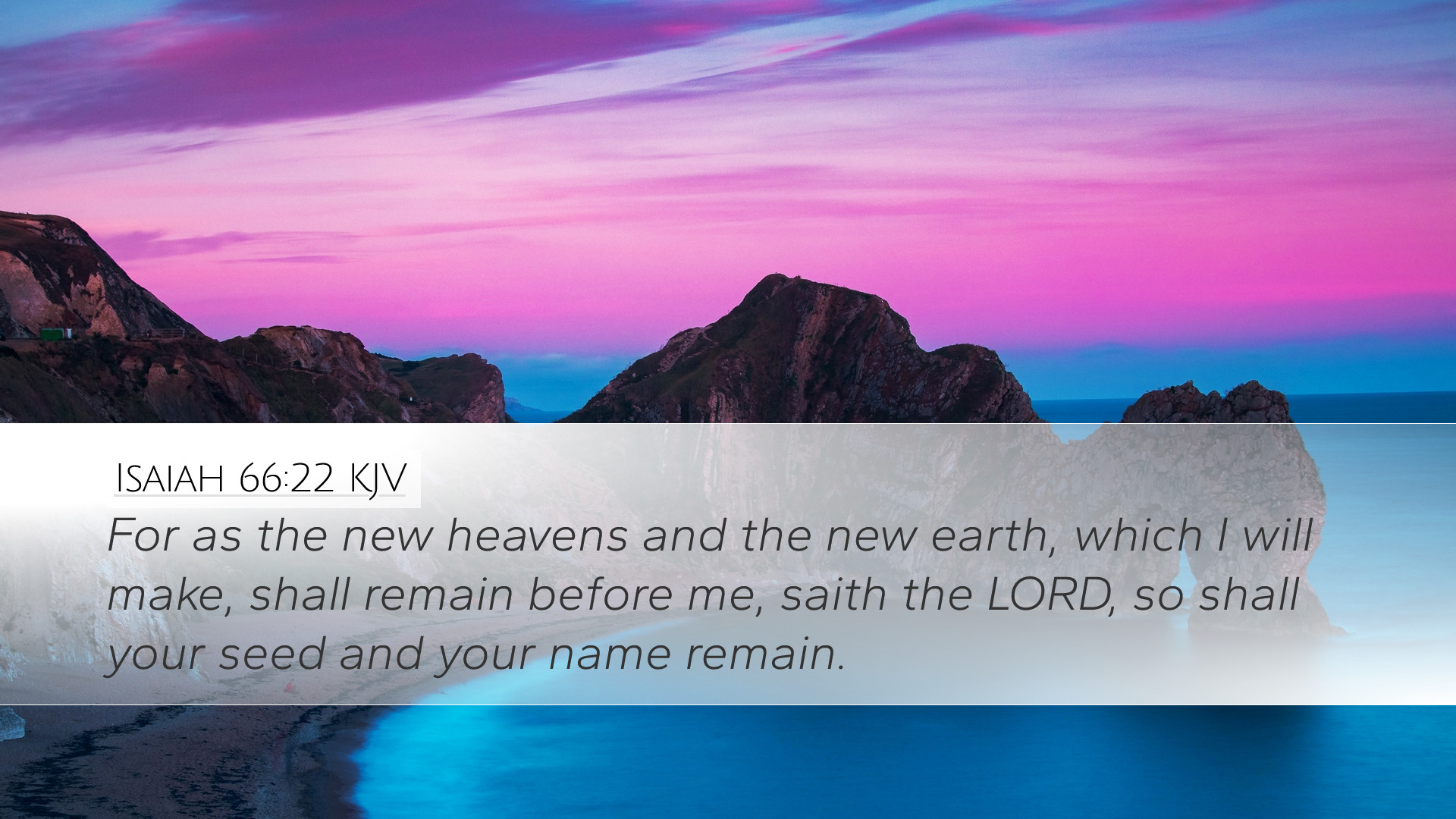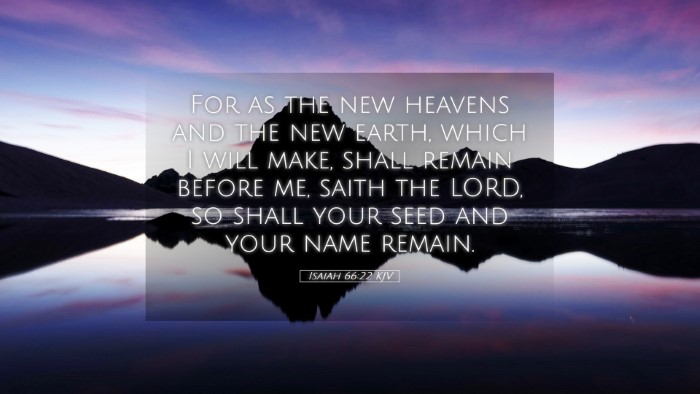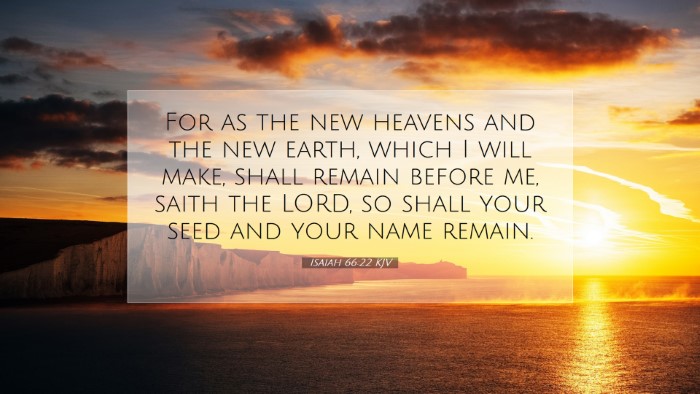Commentary on Isaiah 66:22
Verse: "For as the new heavens and the new earth, which I will make, shall remain before me, saith the Lord, so shall your seed and your name remain."
Contextual Overview
The prophetic book of Isaiah concludes with a promise of restoration and new creation. In chapter 66, Isaiah speaks of God's ultimate plan for humanity and creation, emphasizing the eternal nature of His covenant with His people. This verse encapsulates the hope of a new order that God will establish, affirming both the permanence of His promises and the enduring legacy of His followers.
Analysis of the Verse
Isaiah 66:22 presents two critical themes: the eternal nature of God's creation and the lasting impact of His people. Summarizing insights from various public domain commentaries, we can delve deeply into both aspects.
The New Heavens and the New Earth
Isaiah mentions "the new heavens and the new earth," which connects to other biblical texts like Revelation 21:1. This new creation represents God's renewal and restoration of the universe. According to Matthew Henry, this imagery reflects God's ultimate intention to restore not only the human soul but the entirety of creation—a theme prevalent throughout prophetic literature.
Albert Barnes adds that this phrase signifies a complete transformation of the current state of existence, ensuring that those redeemed by God will inhabit a realm of eternal peace and joy. The promise of "new" indicates that the old order, marked by sin and suffering, will pass away, making way for a divine order where righteousness prevails.
Permanence of God's Covenant
Adam Clarke emphasizes the declaration of God’s permanence: "so shall your seed and your name remain." This reflects the idea of continuity and legacy. God’s people, those who are faithful, will endure in their identity as children of God, signifying a generational promise that extends beyond physical lineage to a spiritual heritage.
- Historical Foreground: The historical context reveals that Israel faced destruction and exile, yet the promise of enduring legacy reassured them of God’s unfailing covenant.
- Theological Implications: The verse serves as a reminder that God’s elect possess an eternal name—an identity that cannot be erased. It inspires hope and commitment among believers.
Theological Reflections
This passage invites deeper reflection on the nature of God’s promises:
- Hope in Restoration: For pastors and theological students, this is both an encouragement and a challenge: to proclaim hope in God’s restoration and the coming of His new creation.
- Legacy of Faith: The emphasis on "your seed and your name" reminds us that our faith can impact future generations. Biblical scholars should explore how the faith of the current generation influences the next.
- Divine Ownership: The idea that God has a claim on both creation and the faithful suggests that ministry is not just about personal salvation but also about contributing to God’s redemptive plan.
Practical Application
Understanding Isaiah 66:22 can be transformative for both personal faith and congregational life:
- Pastors should incorporate the themes of renewal and legacy into their teaching, reminding congregations that they are part of a larger story in God's redemptive plan.
- Theologians may explore how this verse connects with New Testament teachings about the eternal state and the resurrection, particularly in light of eschatological views.
- Students of the Bible could focus on the implications of this passage for understanding the character of God as faithful and eternal, fostering a deeper relationship with Him.
Conclusion
Isaiah 66:22 stands as a powerful affirmation of God’s enduring promise to His people. The harmony between the new creation and the legacy of His followers serves as a profound reminder that in Christ, all things are made new, and His covenant remains unbroken. The insights from public domain commentaries enrich our understanding, providing layers of meaning that invite us to engage earnestly with our faith and its implications for the world to come.


